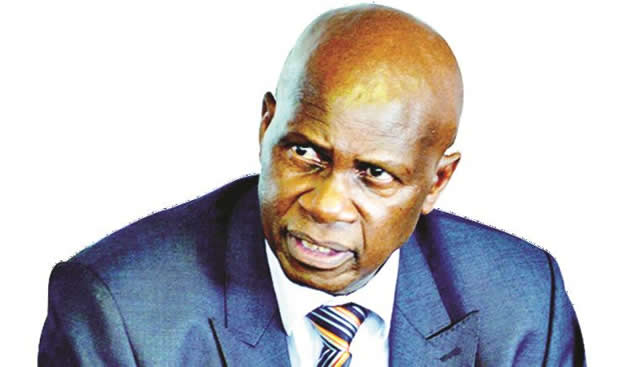Disunity threatens Zim players’ future

WHEN Zimbabwe’s players refused to turn up for training in August 2013 and announced that they were forming a union, their main goal was to get the money that Zimbabwe Cricket owed them.
Over the years it had come to be expected that match fees would be paid several months late, but when monthly salaries stopped arriving, the players decided enough was enough.
Higher match fees were also among their stated demands, but at that stage the idea that their collective heft might be able to secure a lasting future for cricketers in Zimbabwe was almost an afterthought.
In March 2014, however, the process towards that idea was set in motion when Zimbabwe Professional Cricketers’ Association (ZPCA) representative Eliah Zvimba presented ZC with a Memorandum of Understanding and Collective Bargaining Agreement, which drew on agreements in place between other player bodies and their boards.
Zimbabwe’s cricketers had been dictated to for almost a decade, but the MoU was designed to balance the scales of power. Not surprisingly, ZC was in no hurry to sign.
A Bulawayo labour lawyer, Zvimba had caught the eye of the players when he managed to extract payments towards medical bills from a reluctant ZC on behalf of a Matabeleland player who had been involved in a car accident.
Zvimba said repeated attempts to get a meaningful response from ZC on the MoU had been fruitless, and claimed that he was largely being treated with contempt.
He produced a text conversation in which a ZC human resources manager responded to his query over certain player payments with nothing more than a series of emoticons.
Over the course of the year, his frustrations continued, although a ZC spokesman denies that there was a reluctance on the board’s part, saying the MoU was “undergoing our due process”.
Yet as the World Cup drew near, time was running out for the governing body. ZC needed the players to sign participation agreements for the tournament, but the players, who were being advised by the Federation of International Cricketers’ Associations (FICA), first wanted a commitment to the MoU as well as $2 million from ZC’s World Cup earnings. As ZC dragged out the discussions, the players knew that they had a World Cup-sized bargaining chip.
The stand-off was summed up by Ian Smith, FICA’s chief operating officer, in an email to the ZPCA executive, which Prosper Utseya included in his infamous racism letter.
“My take on the current state of ZC,” Smith wrote on January 2, “is that, as far as they’re concerned, as long as they send a team to the World Cup and get their ICC payment, the rest can go to hell — that is tomorrow’s problem and that includes how the professional game will be funded for the next few years.
ZPCA’s leverage only exists in your ability to determine whether a team goes to the World Cup … This is a crucial juncture in the history of cricket in Zimbabwe and how it proceeds is largely in your hands.”
This was not news to the players, but Smith had good reason for impressing the importance of the situation upon them: Utseya, in his capacity as the ZPCA committee’s vice secretary, had informed Smith that the association intended to release Zvimba because of a lack of communication around funds that FICA had been supplying.
FICA for their part had clearly come to respect Zvimba, inviting him to their annual general meeting in Australia to discuss the ZPCA’s potential FICA membership, and agreeing to pay $1,500 per month towards the ZPCA’s office expenses.
Yet the latter gesture became the bone of contention around which the entire project fell apart. Utseya says that the players were unaware of the payments until sometime in December, and two other ZPCA committee members back his claim up.
Zvimba points out that the five players on the executive were the only signatories on the association’s bank account that a Harare office was indeed set up, and that invoices for expenses were sent to FICA as proof. Furthermore, he claims that his relationship with some of the players on the ZPCA executive broke down when they demanded that their wives be employed by the association.
Nevertheless Zvimba’s contract was not renewed when it expired at the end of 2014. According to the ZPCA’s own constitution, the decision ought to have been voted on by the entire membership, but it wasn’t put to a vote until after Zvimba’s contract had already expired and those picked for the World Cup had signed up to ZC’s terms, which promised $650,000 to be shared among the World Cup squad, rather than $2m for the wider player pool.
Tony Irish, FICA’s executive chairman, is in no doubt about why that happened, saying that the work put in by FICA and Zvimba “was undermined by a very small group of players who got rid of Zvimba and did a separate deal with ZC to enrich themselves at the expense of the wider player group”.
The spotlight falls on Utseya, who had been banned from bowling offspin in October 2014 when he was found to average 51 degrees of flexion, and only cleared to bowl legspin in December, but was nevertheless picked in the World Cup squad in early January.
In a report in the Daily News, a colleague accused Utseya of orchestrating Zvimba’s dismissal in return for a place in that squad, a charge Utseya denies.
“My selection was criticised, but when I look at it, none of the spinners performed in Bangladesh (in late 2014), and I did better than the other spinners against Canada,” he told the Cricket Monthly earlier this year.
“No one can tell me that I didn’t deserve to go to the World Cup, because it was based on statistics.”
Yet what is undeniably true is that without a representative, talk of the MoU and a $2m share of the World Cup earnings fell away, and after 11th hour discussions as they waited to board their flight at Harare Airport, the 15 World Cup squad members agreed on a formula for how they would split the $650,000 pie amongst themselves.
In turn, FICA withdrew its support because, Irish says, “it believed that little could be achieved in an environment where players were divisive and not prepared to stand together for the greater good of the overall current player system and for its future generation of players”.
Masakadza, the ZPCA’s president, insists that FICA “didn’t listen to our side of the story – they heard Eliah’s side of the story and took that as gospel truth”. But aside from Utseya’s emails to Smith, the players don’t appear to have gone to great lengths to present their point of view.
Irish says that he emailed Masakadza after things went sour in January, but is yet to receive a reply.
With Zimbabwe increasingly travelling to parts of the subcontinent where other teams are not willing to venture due to security threats, a functioning players association seems like a crucial decision-making body.
While Zimbabwe’s national players are reasonably well paid, the majority of their franchise counterparts do not earn enough to maintain the sort of professional lifestyle required of players aspiring to international cricket.
For Zimbabwe to move forward, that needs to change so that the level of franchise cricket can rise accordingly. But it won’t happen unless the players formulate a coherent plan and stand together as one. — ESPNCricinfo








Comments